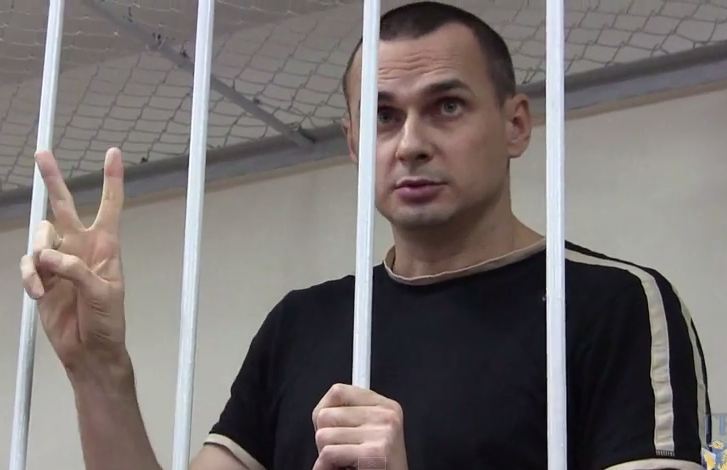After Russia illegally annexed Crimea in March 2014, the local officials were offered to pledge allegiance to the new "authorities" of the peninsula. Ilmi Umerov, head of the Bakhchysarai region and deputy head of the Mejlis, was one of those who refused. As Umerov's daughter Ayshe Umerova told, her father declared that an oath is given once in a lifetime. After that, the Crimean Tatar leader defended pro-Ukrainian and Crimean Tatar positions in occupied Crimea for over two years. Until the Russian occupation authorities opened a criminal case against him and forcefully placed him in a psychiatric hospital.
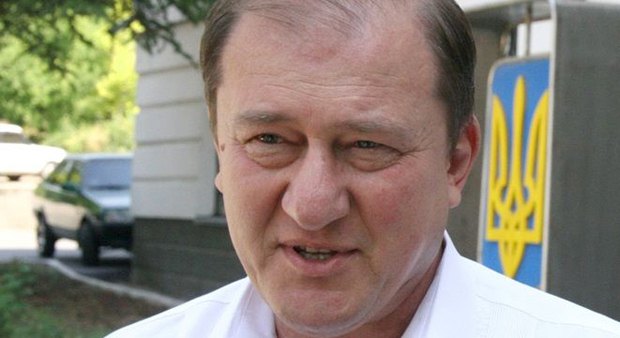
Umerov was detained by the employees of Russia's FSB in May 2016 and accused of "calling to violating the territorial integrity of Russia." On 11 August, an ambulance brought Umerov to the hospital with a hypertensive crisis right out of the court call, where a forced forensic psychiatric examination was being discussed. A few days after, FSB operatives transported Umerov from the hospital to a psychiatric ward, where he stays today.
His lawyers and human rights activists say that the actions of the Russian special services are repressions against Crimean Tatars and compare them with the Soviet period, when "punitive psychiatry" was used as a method of fighting against dissent.
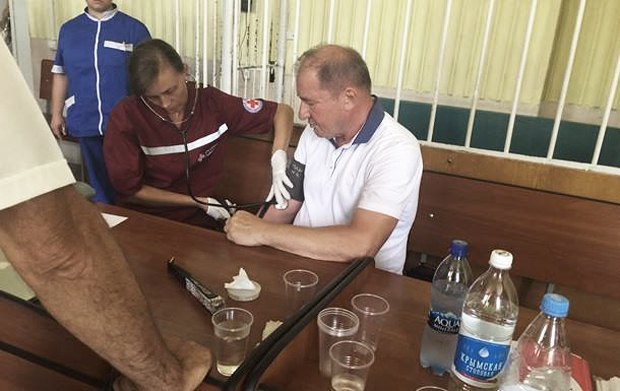
The criminal case against Umerov, under Part 2 of Article 280.1 of the Criminal Code (publicly calling to commit acts aimed at violating the territorial integrity of the Russian Federation) was opened after he gave an interview to the Crimean Tatar channel ATR in March 2016. Russia shut down ATR in Crimea, as well as most other Crimean Tatar outlets, on 1 April 2015, but the channel now operates from Kyiv. Speaking in the Crimean Tatar language, the deputy head of the Mejlis said "we must force Russia to withdraw from the Crimea and Donbas. Ukraine should adopt a number of laws on the status of the Crimean Tatar people, and amend the Constitution." Working with the Russian translation and refusing to check whether it corresponds to the original, the prosecutor assessed these words as having the potential to "influence the opinions [of the viewers] about the withdrawal of the republic of Crimea from the Russian Federation."Should we open up criminal cases against the leaders of the countries where Crimea's 'annexation' to Russia is not considered legitimate?
Umerov denies the accusations.
"My words were taken out of context, I didn't make any calls to violate the country's territorial integrity. I was speaking about the necessity to increase sanctions, which would make Russia return Crimea to Ukraine. And actually, I want to restore the territorial integrity of both Russia and Ukraine. The majority of countries in the world didn't recognize the 'annexation' of Crimea to Russia. Should we open up criminal cases against the leaders of the countries where Crimea's 'annexation' to Russia is not considered legitimate? I don't recognize a 'referendum' that was conducted in violation of all international norms. And all the decisions which were adopted based on the 'referendum': 'elections,' recruiting new people to the 'authorities.' I don't have any complaints about Russia's borders as of 2001. But the events of 2014 are in my opinion a violation of international, and most importantly, Ukrainian law, from whom the territory of Crimea was torn away," Umerov said in court.

Umerov is going to be forcefully held in the psychiatric ward until at least September 7. But Umerov is 59. He has Parkinson's disease, hypertension, and diabetes. For him, eating two times a day with intervals of 17 hours, and the indifference of the psychiatric personnel to his health problems may result in death.
Who is this Crimean Tatar, of whom the Russian occupation authorities are so afraid of?
Dissenter from childhood
Stalin deported all the Crimean Tatars in 1944. The majority of those that survived the arduous journey (around 46% died) ended up in Central Asia.
Read more: Deportation, genocide, and Russia’s war against Crimean Tatars
It is there, in the city of Margilan (Uzbekistan) where little Ilmi Umerov was first noticed by Russia's special services, then the KGB. Leaflets in children's handwriting calling Crimean Tatars to "speak out" were spread all over the town. At the order of the KGB, the schools ordered all the pupils to write a dictation. The authors were identified by their handwriting. In this way, the name of Ilmi Umerov sounded for the first time in the Crimean Tatar national movement. He was a tenth-grade pupil and, according to the Soviet authorities, was spreading fabrications discrediting the Soviet system.
Ilmi Umerov participated in the national movement of the Crimean Tatars to return to their historical homeland throughout all his life. At the end of the 80's, the movement gave results - Crimean Tatars started returning home. The Umerovs moved to Bakhchysarai and were able to buy a small house.
Like many other educated Crimean Tatars, Ilmi Umerov had to start over: there were no jobs for Crimean Tatar specialists. He worked as a doctor only for six years after graduating from the medical university. So he started growing and selling onions and participating in the national movement.
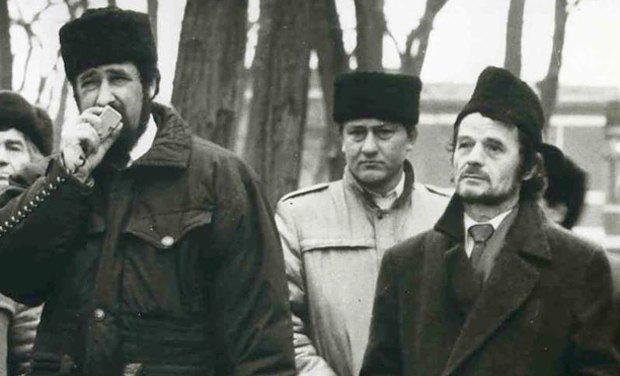
When the Crimean Tatar Mejlis was created in 1991, Umerov was elected as one of its 33 members. Three years later, the Crimean Tatars received a quota in the Crimean parliament. One of the 14 deputies was head of the Bakhchysarai regional Mejlis, Ilmi Umerov.He was one of the first Crimean Tatars to rise to such high administrative positions.
"When he became a deputy of the Verkhovna Rada of Crimea, he traveled to the parliament by electric train and walked, because he didn't have money for a bus or other transport," recalls Aider Halimov.
High-ranking official and authority for all nationalities
Umerov's ability to find compromises and adherence to the Crimean Tatars' national interests were behind his successful career of an official in the Crimea. And also - the absence of corruption stories. His highest positions were: Deputy Prime Minister of Crimea (1994-1997) and Deputy Chairman of the Crimean Parliament (2002-2005). The Bakhchysarai region which he lately headed was one of most loaded with national conflicts, with a large percentage of Crimean Tatars but also a strong Russian movement hostile to the Tatars. Umerov managed to turn this volatile region into a haven of political stability, becoming an authority for the public opinion leaders in the region, regardless of their nationality. He was one of the first Crimean Tatars to rise to such high administrative positions.
In August of 2014, Umerov resigned from his post at the Bakhchysarai administration. He could not run the region being a Ukrainian official, and had no plans for becoming a Russian one.
But he continued to actively participate in the national movement. 2014 was the hottest time of the protest actions in Crimea.
Read more: The Crimean resistance to Russian occupation: Photo flashback
The degree of trouble only increased.
In January 2015, one Umerov's closest Crimean Tatar activist associates was arrested - Akhtem Chyigoz was the deputy head of the Mejlis and also head of the Bakhchysarai regional Mejlis. Acknowledged as a political prisoner by the Russian human rights organization Memorial, he is still awaiting a verdict in the Simferopol remand prison.
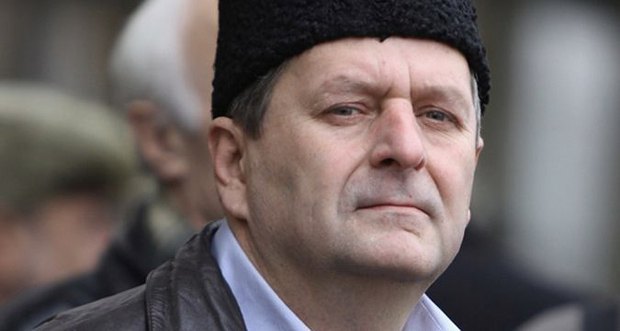
After two months, Umerov became the deputy head of the Mejlis. And a few days after, the Crimean Tatar newspaper which he helped found, Avdet, was denied registration, like most other Crimean Tatar medias in the occupied peninsula.Punitive psychiatry is often used when the dissenter can't be silenced with legal methods.
In April 2016, the Russian-controlled "Supreme Court of Crimea," the legitimacy of which is denied by most countries of the world, declared the Mejlis an extremist organization and forbade its activities in Russia.
The Mejlis is not a 'civic organization,' not a 'club of interests,' but the elected representative body of the people. I do not recognize the illegal referendum of 16 March 2014! I do not recognize the jurisdiction of the Russian Federation in Crimea! I consider the current government in the Crimea to be occupational, and the territory of Crimea to be annexed by the Russian Federation with the assistance of military forces," wrote Ilmi Umerov that day.
The FSB came after him a month later, for the interview to ATR, and released him on bail.
Did that silence Umerov?
No.
Punitive psychiatry is often used when the dissenter can't be silenced with legal methods.
The criminal cases opened against Crimean Tatar political prisoners get rid of illusions that the Russian judicial machine can be stopped by absent legal grounds.
It seems that Umerov's authority and state of health became the reason for Russia deciding to eliminate him with the methods of punitive psychiatry.
"You just need to admit that you were mistaken, and everybody will stop bothering you," I was told. It turns out everything is very simple. Considering my condition today, when I lost consciousness, I don't know what will happen next. Morally I am quite strong, but physically..."
These words of Ilmi Umerov were told by journalist Anton Naumlyuk who visited him in the psychiatric ward.
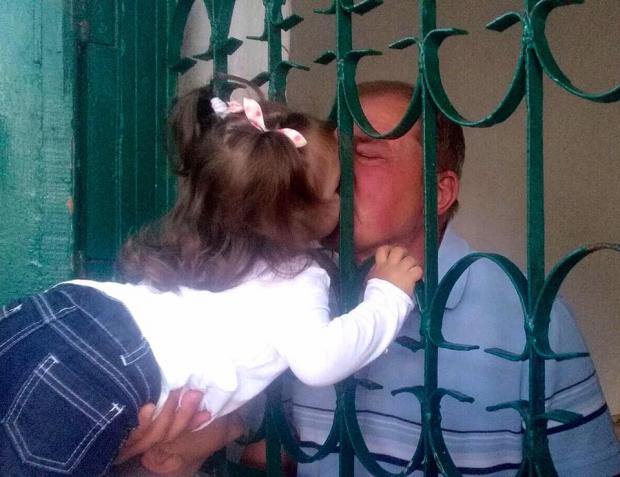
Umerov's defence
Umerov is defended in court by four lawyers: Mark Feygin and Nikolai Polozov, who represented the interests of another Ukrainian political prisoner Nadiya Savchenko, and local lawyers Emil Kurbedinov and Edev Semedliaiev.
The renowned Russian human rights center Memorial declared him a political prisoner on 3 August 2016, because
"he did not call for violent actions, and criminalization of expression, including regarding the issue of ownership of the Crimea, in particular, that of a resident of the Crimea, a Crimean Tatar, whose rights have been violated by the annexation of Crimea to Russia, clearly contradicts both the Russian Constitution and international obligations of the Russian Federation."
Maksim Shevchenko, a member of the Human Rights Council under the President of Russia, called Umerov's persecution a return of punitive psychiatry to the arsenal of the Russian security forces.
"If they really started using punitive psychiatric medicine in the interests of the investigation, this is a terrible symptom. If this is being done with the approval of the Crimean 'authorities' or security forces, this is a crime,"
said the human rights activist and promised to report about Umerov's persecution to Vladimir Putin.
Meanwhile, Crimean Tatars have been taking to prayer to support their leader, regularly gathering in traditional Muslim Duas, collective prayers for the health and release of the deputy chairman of the Mejlis. On August 22, Umerov's yard in Bakhchisarai gathered more than 500 people in a Dua. "This is a very serious spiritual act for all Muslims. But today not only Muslims came but also all those who expressed support for Ilmi Umerov," said Ayshe Umerova. "In addition, it is a symbol of our unity."

Officials of different countries worldwide have called upon Russia to stop its repressions against Ilmi Umerov. Additionally, on September 3, rallies were held in support of Ilmi Umerov all over the world. You can find more about them by the hashtag #StopKillingIlmiUmerov and on the page of the Let My People Go initiative, which advocates for the release of all Ukrainian hostages of the Kremlin.


